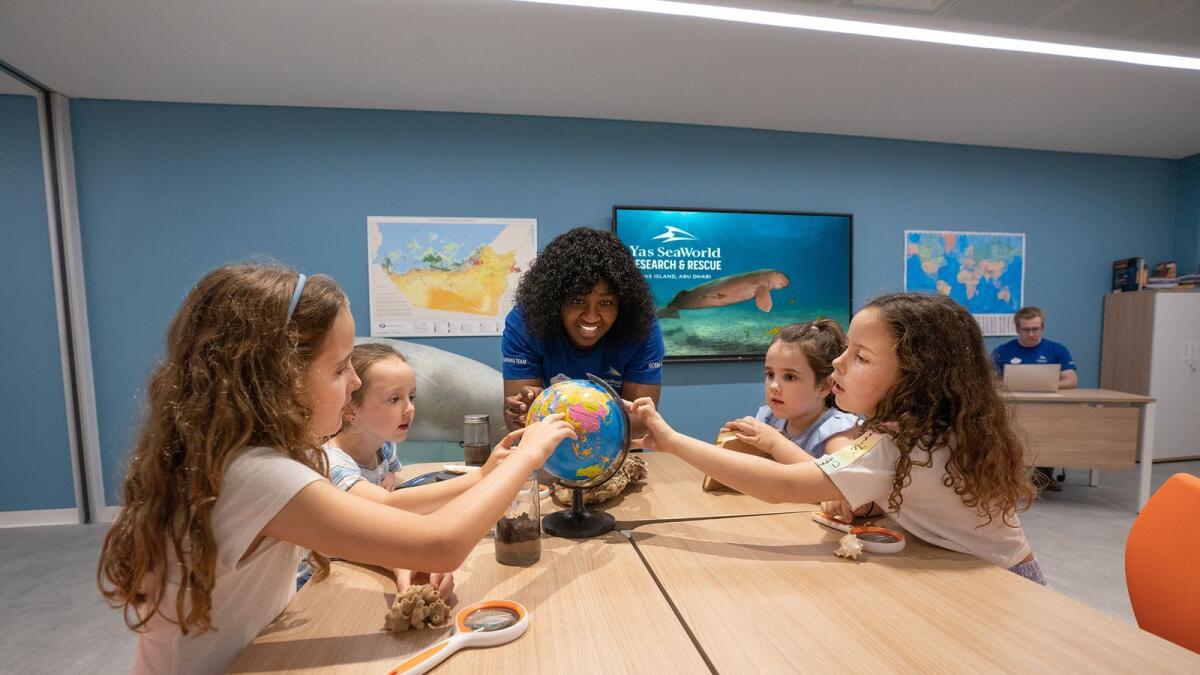
Abu Dhabi Schools Focus On Identifying, Supporting 'At Risk' Students As They Implement New Policies
One of the key policies focuses on early identification and support of students who are at“educational risk” in order to enhances their chances of academic progress, promotion, graduation, and successful transitions to post-secondary education or other career paths.
The ADEK Student Protection Policy mandates that schools establish measures to prevent and address student maltreatment. Furthermore, the ADEK Student Administrative Affairs Policy requires schools to identify students with unauthorised absenteeism exceeding five per cent as a“concern” and assess whether they are at educational risk.
School heads said some students may be experiencing learning difficulties, identified by educational psychologists, which could be both physical and intellectual.
David Craggs, Vice Principal, GEMS World Academy - Abu Dhabi, said,“We are actively implementing ADEK's mandate to support students at educational risk by developing and refining policies and processes that fully align with the guidelines. We have collaborated with all stakeholders to design policies that identify, assess, and support students facing educational challenges. We have also developed processes that ensure individualised support is available with early intervention and individualised support plans that monitor student progress.”
Stay up to date with the latest news. Follow KT on WhatsApp Channels.
Training staffInstitutions are investing in professional development and training of staff to equip them with skills to identify and address the needs of students at educational risk.
“We actively engage with families to foster a collaborative approach to support the holistic development of these students. We have developed processes for identification, including ongoing analysis using evidence-based indicators, including attendance, wellbeing, behaviour, academic performance, language challenges, and parental engagement. This includes referrals from staff, parents, and students,” added Craggs.
'Tiered model of support'Schools are following the 'Tiered Model of Support' to ensure that every student receives the appropriate level of intervention and support based on their individual needs.
“Tier 1 includes high-quality teaching strategies by the classroom or subject teacher reflecting universal design for learning and quality first teaching. Tier 2 makes specific targeted intervention for students whose needs are not met by Tier 1 strategies; and Tier 3 includes highly personalised intervention and specialist support for individual students whose needs are not met by Tier 1 or Tier 2 interventions,” he added.
Learning plansSchools in the capital are also actively developing learning plans tailored to individual student's needs include the use of school-based intervention teams comprising senior leaders, counsellors, the inclusion head, relevant staff where required, and, in some cases, specialist external support.
Abhilasha Singh Principal, Shining Star International, said,“There could be some children who may slip through the cracks if teachers are not attentive. Some might have learning difficulties, ranging from mild to severe, while others may be too shy or quiet to speak unless spoken to.
"Additionally, some may come from broken families or face behavioural challenges. The inclusion department is trained to identify such children and address their needs.”
Schools even in certain cases refer such individuals to external consultants, and based on their findings, create an intervention plan.“This plan may include an Individual Education Plan (IEP) for some children, with regular monitoring conducted in collaboration with teachers and the principal. In some cases, assistants, such as shadow teachers or Learning Support Assistants (LSAs), may work alongside the child in class. Progress is analysed after collecting relevant data to track the child's development,” she added.
Singh highlighted some children may also face cognitive challenges, such as autism or dyslexia, which, if left unidentified, can lead to increased behavioural problems.“Identifying these issues early is a critical aspect of a teacher's role, as these students, often struggling at the bottom, are the ones who require the most support.”
Inclusive educationSchool leaders reiterated that 'quality first teaching' is their core focus, ensuring that every student has access to effective teaching practices that cater to their different learning styles and abilities.
K George Mathew, Principal/CEO, GEMS United Indian School – Abu Dhabi, said,“Our Health and Safeguarding team are trained to identify students who are maltreated at home or school, leading to their poor performance as a learner. Intermittent absences from school due to several factors also put learners at risk. All such students can be at educational risk, and we have safeguarding processes and procedures to address such risks. This involves creating targeted interventions to support their learning and development.”

Legal Disclaimer:
MENAFN provides the
information “as is” without warranty of any kind. We do not accept
any responsibility or liability for the accuracy, content, images,
videos, licenses, completeness, legality, or reliability of the information
contained in this article. If you have any complaints or copyright
issues related to this article, kindly contact the provider above.


















Comments
No comment